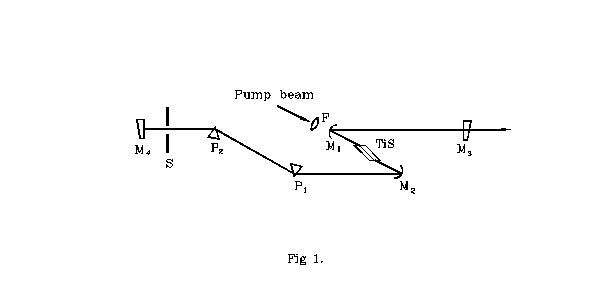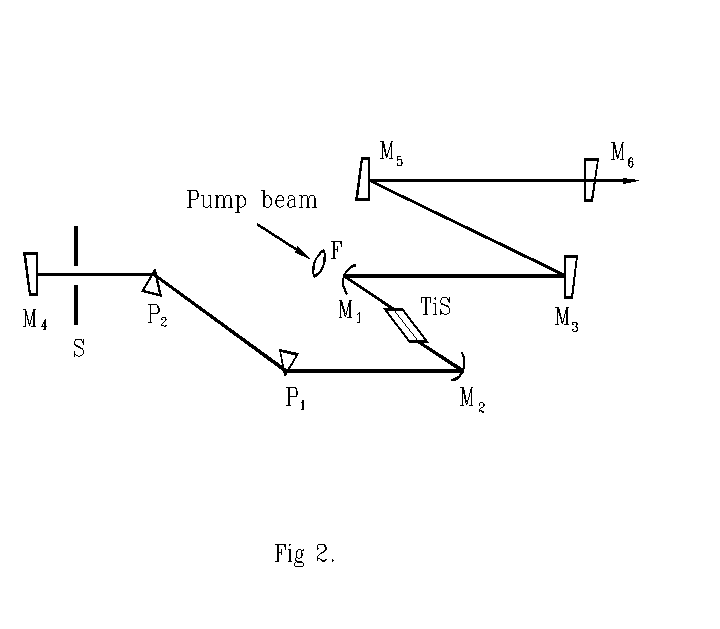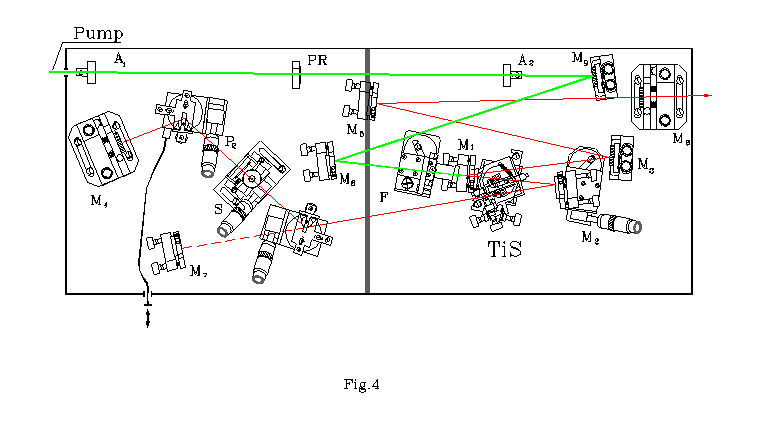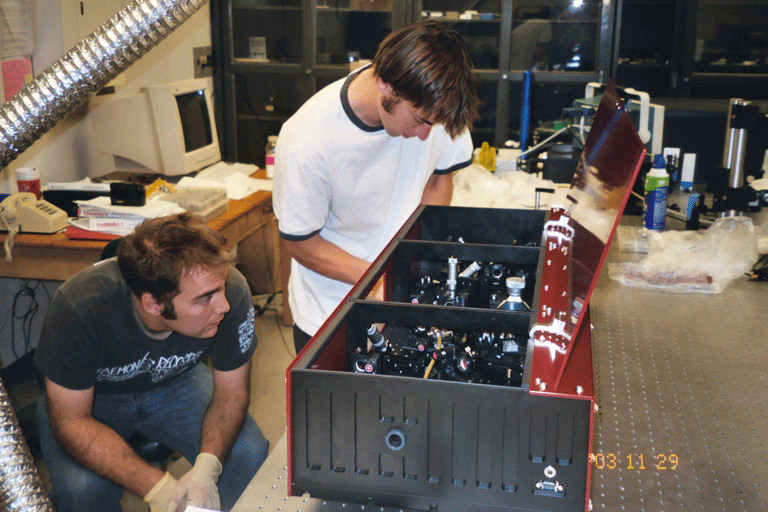FemtoStart Ti:Sapphire laser Kit featured in "Laser Sources for Confocal Microscopy"
Starter kit enables easy femtosecond lasing
Femtosecond Kit from Del Mar Ventures
The Femtosecond Kit FemtoStart from Del Mar Ventures represents an excellent
compromise between time and cost. Containing all necessary optical and
mechanical elements together with a thorough instruction, it enables the user to
achieve stable femtosecond lasing after a short period of time. FemtoStart kit
can be used as introductory system in colleges and universities for
undergraduate and graduate training.
FemtoStart Kit is an excellent tool for research groups who would like to learn
more about opportunities of using femtosecond laser pulses in a variety of
applications including physics, chemistry, biochemistry, biology, new material
research, semiconductor physics and optical communications, space research and
medicine.
Basic FemtoStart Kit’s configuration correspond to 100, 50 or 20 femtosecond Ti
: sapphire lasers. Optional configurations are also possible. FemtoStart kit has
several advantages compared to fixed setups; e.g. repetition rates may be varied
from 70 to 140 MHz. We recommend 5 W diode pumped solid state (DPSS) laser
(Verdi from Coherent or Millenia from Spectra-Physics) as a pumping source,
however any Ar-ion laser or diode-pumped solid-state laser with 3 –5W output
power will do the job. For additional information or to receive a quote e-mail
us at:
sales@dmphotonics.com
FemtoStart Kit is now a part of Del Mar Photonics
Trestles family of Femtosecond
Ti:Sapphire lasers
Read more:
Mode-Locked Femtosecond Titanium:Sapphire Laser Kit
A new generation of solid-state mode-locked lasers produces femtosecond light pulses using Kerr lens mode-locking (KLM) principle of operation and continuous wave pumping sources. KLM principle combines self-focusing nonlinear optical effect and aperture effect together to reach the shortest optical pulses. This Kerr self-focusing effect leads to slight changes in the spatial intensity profile of the resonator mode in laser oscillators. As a consequence , by introducing an intracavity aperture, a power-dependent loss can be created. Owing to the quasi-instantaneous response of nonresonant Kerr nonlinearities, the amplitude modulation induced by self-focusing is able to simulate ultrafast saturable-absorber action and support pulse formation down to the femtosecond regime in solid-state lasers that have long gain-relaxation times. The gain bandwidth of solid state laser materials such as Ti:sapphire extends over >200nm and has the potential for supporting pulses of less than 10fs. The pulse duration from these lasers is determined by critical interplay between intracavity self-phase modulation in media, and negative group delay dispersion.
Del Mar Ventures warranties that every laser kit supplied was tested to be suitable for the Kerr lens mode-locked operation.
Nevertheless, the laser installation without help of the manufacturer requires some experience of the user in laser physics. On the other hand, your work with our laser will gain your experience in ultrafast laser technology. We recommend to read review paper "Ultrabroadband Femtosecond lasers" (C.Spielman, P.F.Curley, T.Brabeck and F.Krausz, IEEE Journal of Quantum Electronics, vol. 30, No 4, pp.1100 -1114) where detailed consideration of theory and experimental realization of KLM lasers is presented. This review contains most of important references. Since 1991 about 90% of publications on mode-locked Ti:sapphire lasers have been published in Optics Letters (a journal published by the Optical Society of America).
The optical scheme of Kerr lens mode-locked femtosecond Ti:sapphire laser is shown in Fig. 1.

This scheme incorporates 4-mirror cavity (M1, M2, M3, M4), Ti:sapphire crystal (TiS), lens for focusing of pump radiation (F), two prisms (P1 and P2) and slit (S). More compact scheme incorporates 6 mirrors cavity (Fig. 2).

5th and 6th cavity mirrors (flat high reflector M3, M5) are placed in long arm of the cavity to make laser more compact. Optical scheme of FemtoStart50 is shown on Fig.3.

Our laser kit contains the following optical elements in the basic configuration:
1. 7 mm long Ti-doped sapphire crystal
2. Dielectric mirrors M1, M2, M3, M4, M5 and M7 with high reflection
(>99.5%)
M1, M2 - high reflector transparent for laser pumping radiation, radius
of curvature is 100 mm
M3, M4, M5, M7 - high reflector, flat
M6 - output coupler
3. F - lens for focusing of pumping radiation, focal length is 100 mm
4. P1, P2 - prisms, Brewster angle incidence at 800 nm
Del Mar Ventures' femtosecond laser kit is a flexible system that gives you
an opportunity to modify laser cavity if desired. User can improve laser
according to recent and future achievements in the field making only minor
changes of optical and mechanical components. These instructions have been
written for basic optical scheme incorporating 6 -mirror cavity in
z-configuration (Fig.3).
FemtoStart50 contains slit (S), which is useful for stabilization of femtosecond
operation if placed near M6. If placed near M4 slit can operate as dispersive
element for wavelength tuning. Standard slit can be used for this purpose.
Mirror M7 is used during alignment procedure (see below).
All components of FemtoStart50 are shown on Fig.4.

(PR – polarization rotator).
This text is part of the manual for 50fs FemtoStart laser kit. Complete and detailed manual with detailed installation and operation instructions supported by e-mail and phone customer service is provided with every femtosecond kit supplied by Del Mar Ventures .

Basic FemtoStart Kit’s configuration correspond to 100, 50 or 20 femtosecond Ti : sapphire lasers. Optional configurations are also possible. FemtoStart kit has several advantages compared to fixed setups; e.g. repetition rates may be varied from 70 to 140 MHz. We recommend 5 W diode pumped solid state (DPSS) laser (Verdi from Coherent or Millenia from Spectra-Physics) as a pumping source, however any Ar-ion laser or diode-pumped solid-state laser with 3 –5W output power will do the job.